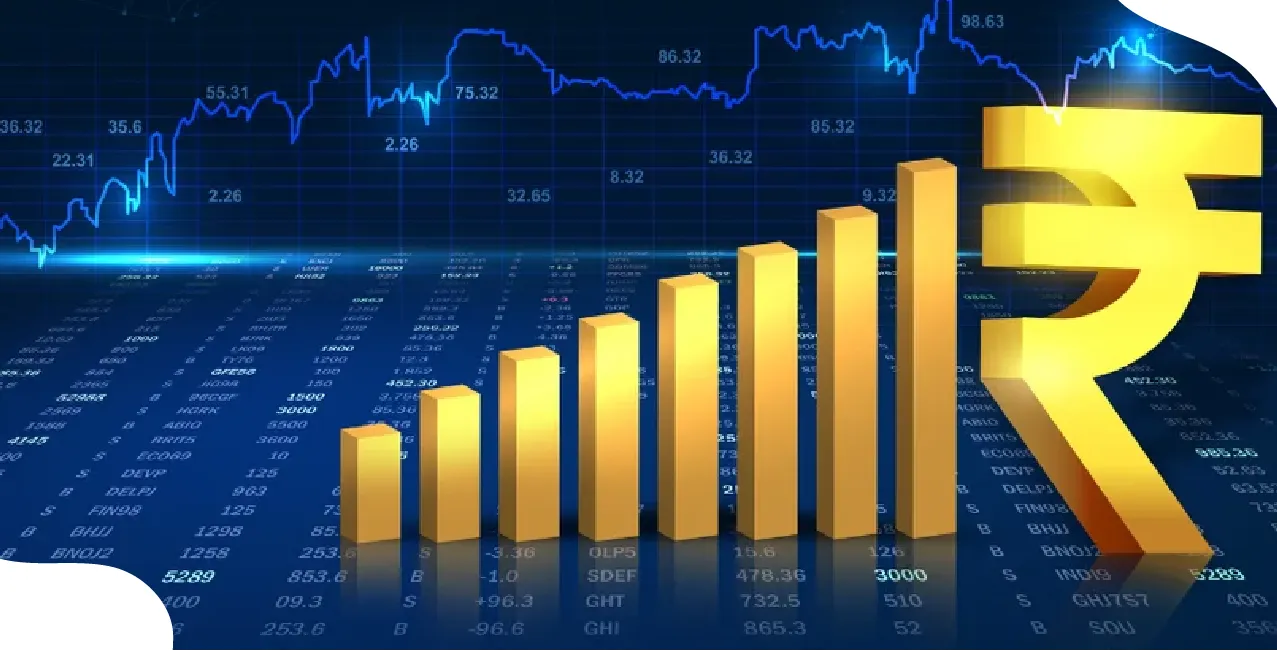What is the Stock Market? Meaning, Functions & How It Works

Check Your Loan Eligibility Now
By continuing, you agree to LoansJagat's Credit Report Terms of Use, Terms and Conditions, Privacy Policy, and authorize contact via Call, SMS, Email, or WhatsApp
The stock market is a place where people buy and sell shares of companies. It helps businesses raise money and gives investors a chance to earn returns.
Let’s understand it through Rahul’s example. Rahul wants to invest in a growing company. The company first issues its shares in the primary market, where Rahul buys 100 shares at ₹100 each. A few months later, Rahul sees that the value of the company has increased. He decides to sell his shares in the secondary market, where other investors are ready to buy.
Here’s how it worked for Rahul:
Rahul earned a profit of ₹3,000 by selling at a higher price. This is how the stock market connects companies and investors, and allows money to grow.
Understanding How the Stock Market Works
The stock market is like a large marketplace where people can buy and sell parts of companies, known as shares. It is not just one place but a network of exchanges, brokers, and other platforms that allow this trading to happen.
Let us break it down in the simplest terms, as if someone is explaining it to you step by step.
What Happens in the Stock Market?
When a company needs money to grow, it sells small parts of its business as shares. This first sale takes place in the primary market. After that, these shares are bought and sold between people in the secondary market.
This trading is done through stock exchanges like the Bombay Stock Exchange or the New York Stock Exchange. The market is strictly regulated to ensure fairness and prevent fraud.
Why Do People Buy Shares?
People buy shares for different reasons
- To earn a profit by selling them at a higher price
- To receive income through dividends
- To get voting rights in company decisions
Suppose Anil invests in a company
Anil made a profit of ₹3000 because he sold the shares at a higher price.
The stock market helps move money from people who want to invest to businesses that need it to grow.
Stocks: Buying and Selling Shares
If you have ever split the cost of a group gift, you already get the idea of shares. Suppose you and nine friends start a food stall, each putting ₹1,000. That makes ten shares. If you buy three, you own 30 percent of the stall. Shares in companies work the same way.
When you buy a stock, you become part-owner of a company. In small businesses, one share can mean a lot. In large public companies like Apple, with billions of shares, one share is just a tiny piece.
The stock price moves all the time, just like vegetable prices in your local market. If more people want to buy a share, its price goes up. If more people want to sell, it goes down.
Here is a quick comparison:
Every investor has a different idea of what a share is worth. One person may think a stock is expensive, while another sees it as a great deal. That is what keeps the market active and unpredictable.
Read More – What is the Capital Market? Meaning, Types & Key Instruments
What Is a Stock Exchange?
A stock exchange is a place where people buy and sell shares of public companies. Today, most of this happens online. Once a company goes public, its shares can be traded freely on a stock exchange.
For example, when Infosys or Reliance Industries sell their shares to the public, those shares get listed on the National Stock Exchange (NSE) or the Bombay Stock Exchange (BSE). After listing, anyone can buy or sell these shares through the exchange.
Stock exchanges are well-organised and closely regulated platforms. They help companies raise money and give investors a safe space to trade. These rules and systems make sure trading is fair, transparent, and efficient.
Why Are Stock Exchanges Important?
- Raise capital: Companies sell shares to raise money for growth.
- Liquidity: Investors can buy or sell shares quickly and easily.
- Transparency: Prices are available in real time for all to see.
- Global access: Some companies list on more than one exchange to reach more investors.
Indian stock exchanges like NSE and BSE work just like global ones such as the New York Stock Exchange or the London Stock Exchange, helping both businesses and investors connect.
The Stock Market: A Story of Dreams, Risks, and Lessons
The stock market is not just a place where people buy and sell shares. It is where ambition meets patience, and where fortunes are made or lost through decisions big and small.
Take Scam 1992, for example. It showed how Harshad Mehta rose from nothing to control a large part of India’s market and then fell due to unchecked greed. On the other side of the world, a quiet boy named Warren Buffett bought his first stock at age 11.
Films like The Big Short and Wall Street show the highs and lows of investing. The characters take huge risks, some win, others lose. But in every story, the lesson is clear: understand before you invest.
Books like The Intelligent Investor and Rich Dad Poor Dad have taught millions how to invest the smart way. They are more than finance books; they are guides to building a better financial future.
The market isn’t magic. It rewards those who learn, who wait, and who stay steady when others panic. And maybe, your story starts with one share too.
Unlocking the Essentials of the Stock Market
Also Read -What is SEBI? Role, Powers & Importance in Indian Financial Markets
The stock market may look complicated, but once you understand its basic parts, it becomes much easier to follow. Whether you want to invest or just learn more, here are the key things you should know.
1. Shares or Stocks
A share is a small part of a company. When you buy a share, you become a part-owner of that company.
- Companies sell shares to raise money
- Shareholders earn when the share price increases or when the company pays dividends
- Shares can be bought and sold through a stock exchange
2. Stock Exchanges
Stock exchanges are places where people buy and sell shares. In India, the main stock exchanges are:
- National Stock Exchange, also called NSE
- Bombay Stock Exchange, also called BSE
These exchanges are fully online and follow strict government rules to keep trading safe and fair.
3. Investors and Traders
There are two common types of people in the stock market
- Investors usually buy shares to keep them for many years
- Traders buy and sell shares quickly to make short-term profits
Both want to earn money, but their ways of doing it are different.
4. Demand and Supply Determine Prices
The price of a share changes depending on how many people want to buy or sell it. Just like in a fruit market, if more people want a product, the price goes up. If more people want to sell, the price comes down.
5. Risk and Reward Go Together
- The stock market can give high returns, but it also carries risk
- Prices may change daily because of company news or world events
- Planning well and staying calm helps reduce losses
Conclusion
The stock market is a place where people buy and sell shares of companies. It helps businesses raise money and allows individuals to grow their wealth. Though it may seem complex, understanding its basics can help anyone make better financial decisions and take part in the economy with confidence.
FAQ’s
1. What is the stock market?
The stock market is a system where people trade shares of companies. It connects buyers and sellers through exchanges like NSE and BSE.
2. Why do companies sell shares?
Companies sell shares to raise money. They use this money to grow, develop products or expand operations.
3. Can anyone invest in the stock market?
Yes, anyone with a trading account and some knowledge can invest. You do not need to be rich or an expert.
4. How does the stock price change?
Stock prices change based on demand and supply. News, earnings and investor mood also affect prices.
5. Is investing in the stock market risky?
Yes, it carries risk. Prices can rise or fall. But with proper research and patience, the risk can be managed.
Other Informative Pages | |||
About the author

LoansJagat Team
Contributor‘Simplify Finance for Everyone.’ This is the common goal of our team, as we try to explain any topic with relatable examples. From personal to business finance, managing EMIs to becoming debt-free, we do extensive research on each and every parameter, so you don’t have to. Scroll up and have a look at what 15+ years of experience in the BFSI sector looks like.
Subscribe Now
Related Blog Post

Salaried vs. Self-Employed: Who Gets a Personal Loan Faster in 2025?

Too Many EMIs? What to Do When Monthly Payments Become Unmanageable

Post Office Customer Care Number: Helpline & Support
Recent Blogs
All Topics
Contents
Quick Apply Loan
Consolidate your debts into one easy EMI.
Takes less than 2 minutes. No paperwork.
10 Lakhs+
Trusted Customers
2000 Cr+
Loans Disbursed
4.7/5
Google Reviews
20+
Banks & NBFCs Offers
Other services mentioned in this article





